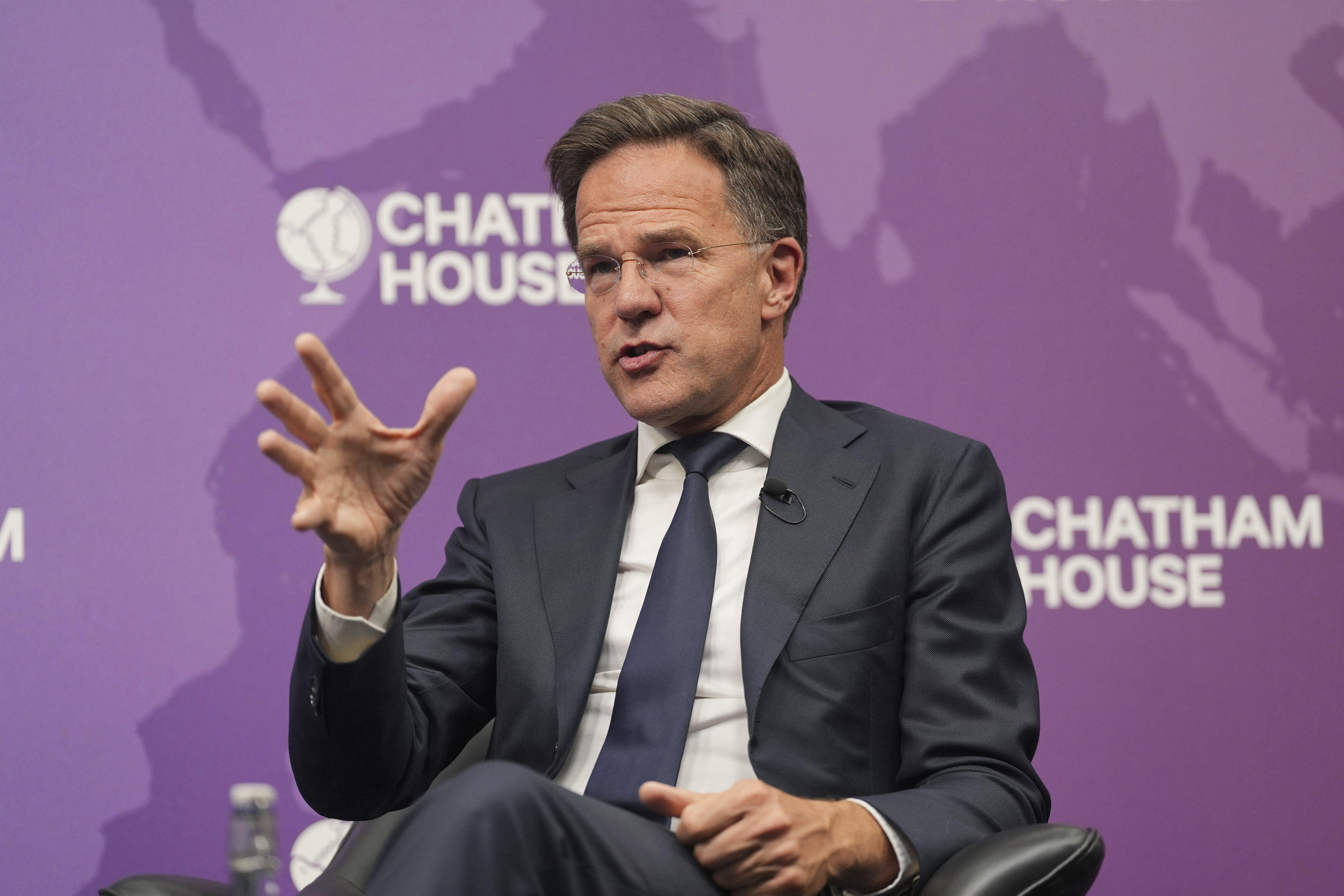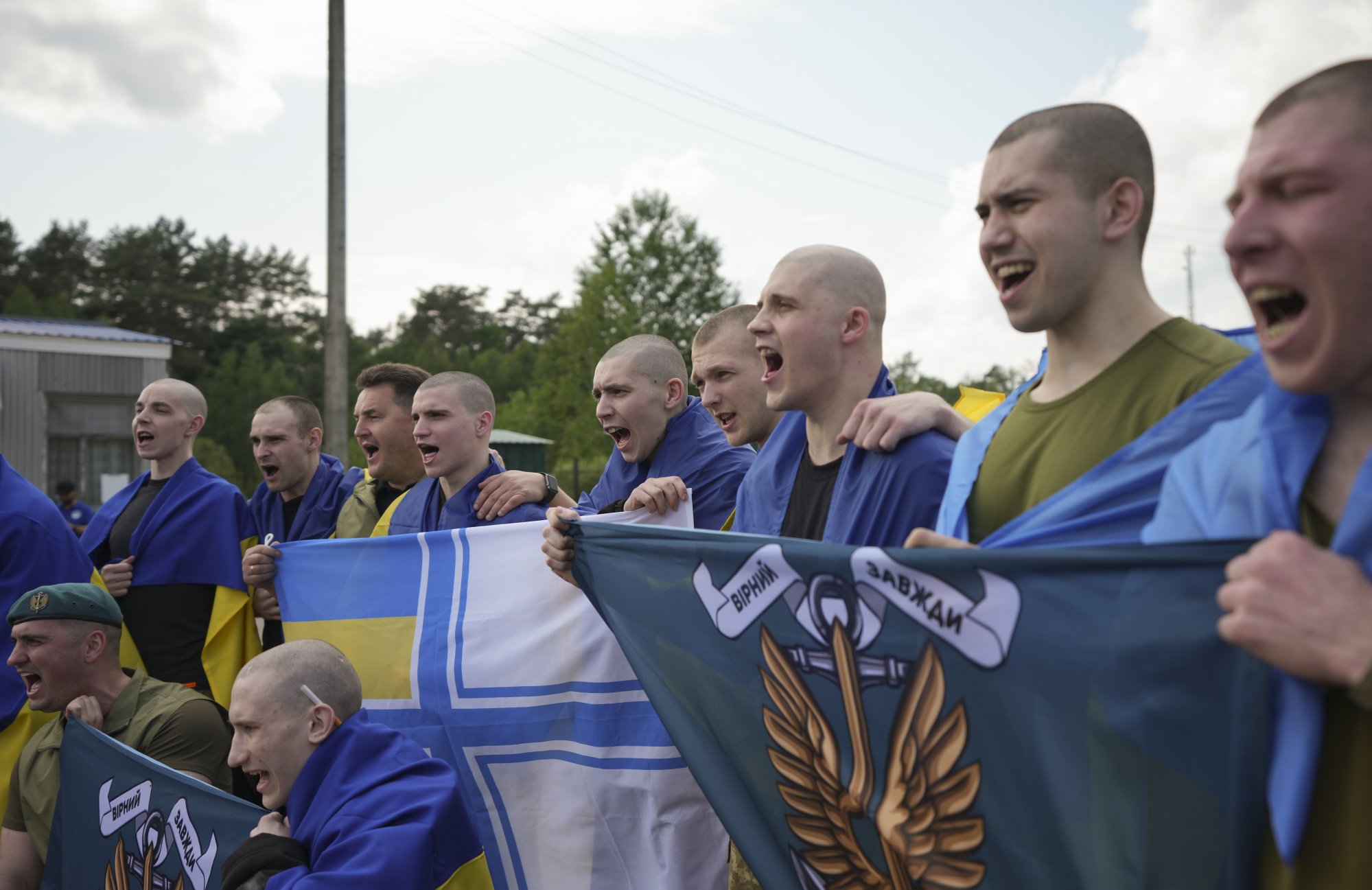Nato chief says it must build Indo-Pacific ties to meet China’s military challenge
Nato Secretary General Mark Rutte contends that Euro-Atlantic security ‘is all interconnected with what is happening in the Pacific’

The head of the North Atlantic Treaty Organization warned on Monday that China’s growing military and its close alignment with Russia, Iran and North Korea meant that Nato should further develop Indo-Pacific partnerships to meet the challenge Beijing posed.
Mark Rutte, Nato’s secretary general, made his remarks at Chatham House in London, coinciding with the US-China ministerial-level trade negotiations in the city.
“What we see at the moment is an enormous build-up in China of their military capabilities,” Rutte, the former prime minister of the Netherlands, said.
He noted that China “already has the world’s largest navy, and this battle force is expected to grow to 435 ships by 2030.
“China is also building up its nuclear arsenal, and it aims to have more than 1,000 operational nuclear warheads also by 2030,” he added.
The PLA navy is the world’s largest, with 234 warships to the US Navy’s 219, according to the Centre for Strategic and International Studies. And the Pentagon has said that China has more than 200 times the shipbuilding capacity of the US.
Rutte called China’s alignment with Russia, North Korea and Iran a “really awful foursome” and cited Beijing’s alleged support of Russia’s invasion of Ukraine.
“They are supporting, as we all know, Russia’s war effort against Ukraine,” he said, contending that Russia is “reconstituting its forces” with Chinese technology.
Beijing has repeatedly denied accusations of providing military support to Russia; in April, Chinese Foreign Ministry spokesman Li Jian said that China had “never provided lethal weapons to either side of the conflict” and “strictly controlled dual-use items”.
The European Union has imposed rounds of sanctions on Chinese firms and individuals for supporting Russia, with many targeting firms for allegedly providing dual-use devices and sensitive materials believed to sustain Russia’s military-industrial base.

Rutte also discussed the Indo-Pacific amid China’s growing military power.
“We cannot think that there is one theatre, which is the Euro-Atlantic theatre,” he said. “We have to be conscious of the fact that this is all interconnected with what is happening in the Pacific.”
Rutte said that the West’s partners in the region, including Japan, South Korea, Australia and New Zealand, are “really worried about what’s happening in the Pacific”.
Nato has been expanding its cooperation with Indo-Pacific allies for years amid shared concerns about China.
Last week, US Army Lieutenant General Andrew Rohling, the deputy chair of the Nato Military Committee, told the Shangri-La Dialogue in Singapore that Nato was committed to build stronger ties to Indo-Pacific partners.
Beijing objects to Nato’s developing relationship with Pacific nations. Lin, the Foreign Ministry spokesman, said last week that China “firmly opposes Nato’s ‘eastward expansion’ into the Asia-Pacific region”.
“Asia-Pacific countries do not welcome the ‘Asia-Pacificisation of Nato,’ and the Asia-Pacific region does not need an ‘Asia-Pacific version of Nato’”, he said.
Rutte’s speech coincided with the start of US-China trade talks in London on Monday, where Beijing’s export restrictions on rare earths and Washington’s similar restrictions on semiconductors believed to be at the top of the agenda.
Rutte proposed that Nato take up a coordinating role to help ensure that member states maintain stable supplies of the strategic items.
The alliance, he noted, could “provide a platform to discuss this wherever necessary – making sure, for example, that when it comes to ammunition production, we have all the basic materials to do that”.
Later this month, leaders of Nato nations are to meet in The Hague, the Netherlands, amid growing turmoil in US-European relations – from tariffs to military spending – brought on by policies pushed by US President Donald Trump, who has made no secret of his scepticism about the security alliance.
Rutte called for a major increase in defence spending and industrial capacity by the alliance’s member states.
“It is a total commitment from the American president and down the whole system to Nato, but also an expectation – an expectation that we in Europe and Canada will indeed equalise in spending with the US,” he said.
“We have to do that, not only to equalise, but we need that 3.5 per cent core defence spending to be able to deliver the capability targets,” he added.
Rutte is pushing Nato’s European members to commit to a benchmark of spending 5 per cent of their gross domestic product on their military – a condition promoted by Trump that has become one of the main fissures between Washington and Brussels.